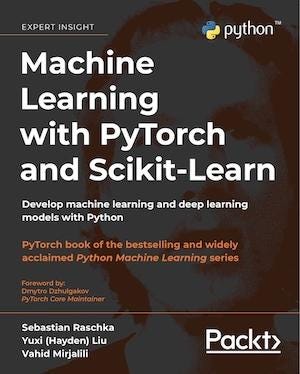Unlocking Data Science Knowledge: Beyond Online Learning Resources
Written on
Chapter 1: Introduction to Expanding Data Science Knowledge
In our current digital age, an abundance of online resources exists for mastering data science. However, many of these platforms often provide only a superficial grasp of the subject. To truly deepen your understanding of essential data science concepts, it is crucial to invest additional effort beyond standard online courses.
Exploring Comprehensive Resources
While numerous platforms, including YouTube, KDnuggets, and Medium, offer valuable insights, they should be viewed as a starting point for grasping the fundamentals of data science.
Data Science Textbooks

This text is particularly beneficial for beginners, as the author articulates fundamental data science and machine learning concepts in an easily digestible manner. The inclusion of code allows readers to practice and construct their own models. I highly recommend this book to anyone eager to pursue data science, as a basic understanding of linear algebra and programming is all that’s required to get started. Other notable textbooks include Python for Data Analysis by Wes McKinney, Applied Predictive Modeling by Kuhn & Johnson, and Data Mining: Practical Machine Learning Tools and Techniques by Ian H. Witten, Eibe Frank & Mark A. Hall.
Practical Application of Knowledge
While online courses lay the groundwork, applying your knowledge to real-world data science projects is essential for skill enhancement. Engaging in Kaggle competitions can provide valuable hands-on experience and challenges for those with a solid understanding of data science.
Networking with Professionals
From my experience, participating in weekly discussions with peers in the data science community has significantly enriched my learning. By connecting with fellow data science enthusiasts and professionals, sharing your code on GitHub, and showcasing your work on platforms like LinkedIn and Kaggle, you can gain exposure to new concepts, tools, and advanced algorithms. Networking not only enhances your knowledge but also sharpens your communication and teamwork abilities.
Teaching Through Blogging
One of the most effective ways to solidify your understanding of a subject is by teaching it. Blogging about data science topics challenges you to grasp core concepts thoroughly and convey them clearly to your audience. Whenever I learn something new, I make it a point to write about it, which helps me validate my understanding. Platforms like Medium and KDnuggets are excellent for sharing your insights, and you may even generate supplemental income from your writing.
Gaining Experience Through Internships
Participating in an internship allows you to apply your data science knowledge in a practical environment, enhancing your skills. This experience also aids in developing vital soft skills, such as effective communication and teamwork.
In summary, while the internet is saturated with resources for learning data science, many only skim the surface. To cultivate a deeper understanding of essential concepts, it’s vital to put in the extra effort.
Chapter 2: Learning Resources and Strategies
In this video, How I Study Data Science, the creator shares personal insights and strategies for effectively learning data science concepts.
In the video titled How I Would Learn Data Science (If I Had to Start Over), the presenter outlines a detailed approach for newcomers to efficiently acquire data science skills.
About the Author
Benjamin O. Tayo is a dedicated educator in data science, offering tutoring, coaching, and consulting services. For inquiries regarding his services, contact: [email protected]. With close to 300 articles and tutorials authored, Dr. Tayo is committed to enhancing public understanding of data science. Support his mission through the links below: